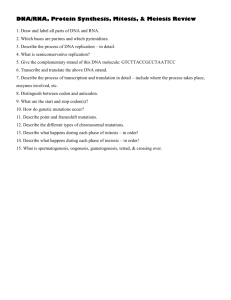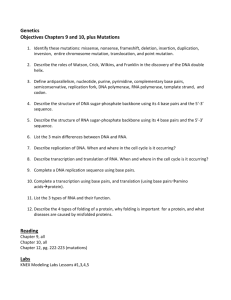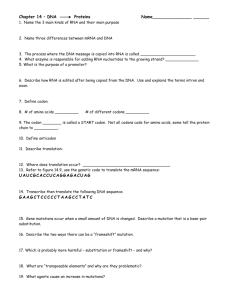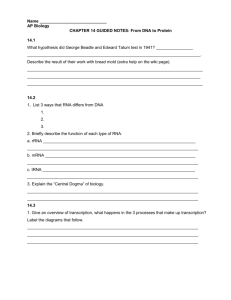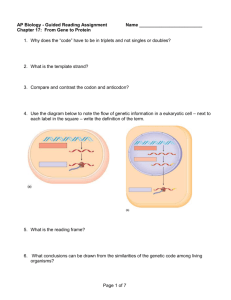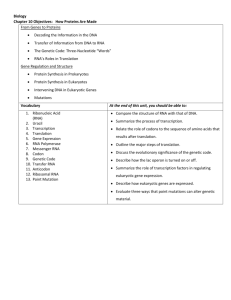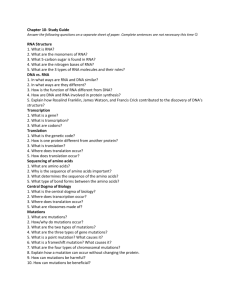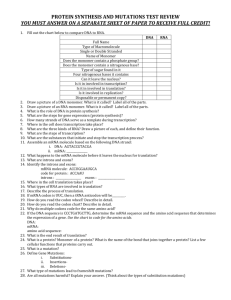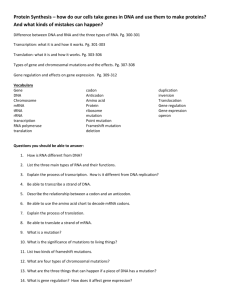Protein Synthesis: Translation and Transcription
advertisement
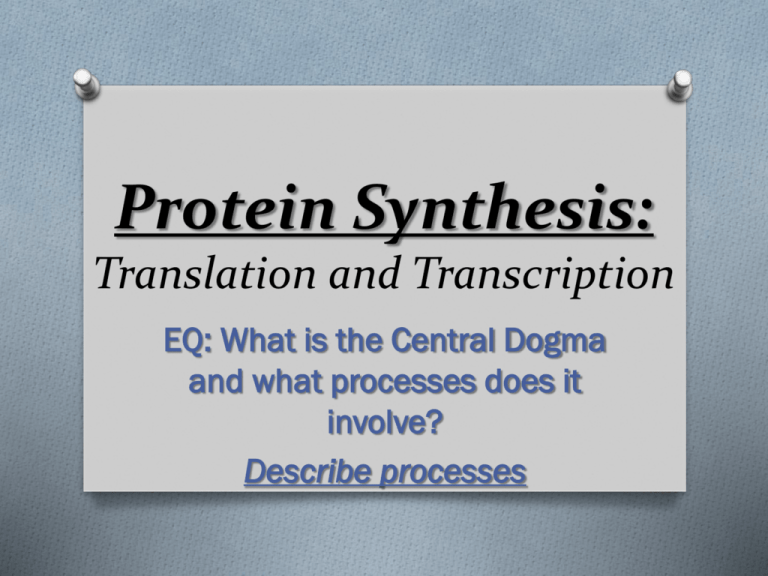
Protein Synthesis: Translation and Transcription EQ: What is the Central Dogma and what processes does it involve? Describe processes Central Dogma O Transcription converts a gene into a single- stranded RNA molecule O RNA carries DNA’s instructions out of the nucleus O The central Dogma states that information flows in one direction from: DNA RNA Protein Central Dogma O The central dogma includes three processes: O Replication O Transcription O Translation O RNA is a link between DNA and proteins RNA O RNA differs from DNA in three major ways. O RNA has a ribose sugar while DNA has Deoxyribose O RNA has uracil instead of thymine found in DNA O RNA is single stranded while DNA is double stranded Transcription O Transcription copies DNA to make a strand of RNA RNA being transcribed Transcription O Transcription makes three types of RNA O Messanger RNA (mRNA) carries the message that will be translated to form a protein O Ribosomal RNA (rRNA) forms part of ribosomes where proteins are made O Transfer RNA (tRNA) brings amino acids from the cytoplasm to a ribosome. Translation O Translation coverts an mRNA message into a protein Translation O Amino acids are coded by mRNA base sequences O Translation converts mRNA messages into proteins O A codon is a sequence of 3 nucleotides that code for an amino acid Translation O Amino acids are linked to become a protein O An anticodon is a set of three nucleotides that is complementary to an mRNA codon. O An anticodon is carried by a tRNA Translation O Translation occurs at the ribosome O For translation to begin, tRNA must bind to a corresponding codon. Ex. tRNA anticodon – UAC binds with mRNA codon AUG O Then attaches amino-acid to form a protein Mutation O Mutations are changes in DNA that may or may not affect an organisms traits and expression of genes Mutations O Some mutations affect a single gene, while others affect an entire chromosome O A mutation is a change in an organism’s DNA O Many kinds of mutations can occur, especially during replication O A point mutation substitutes on nucleotide for another Mutations O Chromosomal mutations affect many genes O Chromosomal mutations may occur during meiosis Mutations O Mutations may or may not affect expression of genes O Chromosomal mutations tend to have a big effect O Some gene mutations change gene expression O A mutation may change protein shape O Some gene mutations do not affect gene expression Mutations O Mutations can be caused by several factors O Replication errors can cause mutations O UV rays and chemicals can cause mutations O Some cancer drugs use these properties to kill cancer cells. O e.g. radiation treatment or chemotherapy

